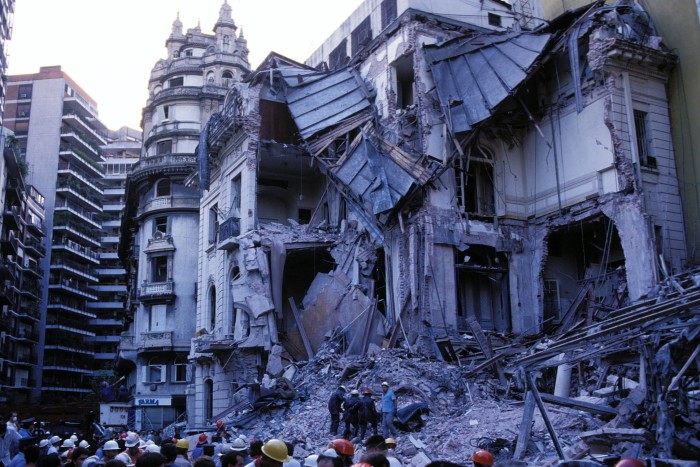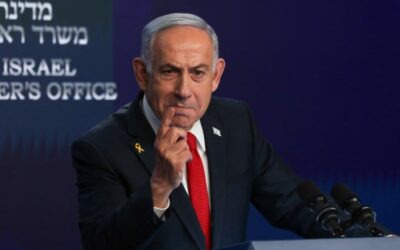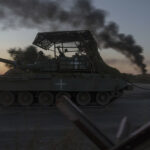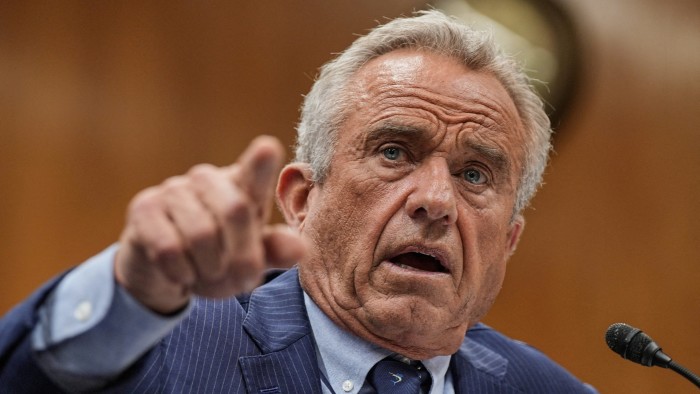How Israel tries to shield its diplomats from attack

Since the founding of the Israeli state, staff at its embassies and institutions around the world have been aware they are potential targets.
But even so, the killing of two young staffers from the country’s embassy in Washington has come as a profound shock, and thrown a spotlight on how the country seeks to protect its missions overseas at a time when its war with Hamas in Gaza has fuelled anger around the world.
“This will crack and shatter the sense of security in DC. If it can happen there, then it can happen anywhere,” said a former senior Israeli diplomat who was posted to multiple locations, including in the US capital.
“This was the nightmare scenario, in the most sensitive location.”
Israel’s Prime Minister Benjamin Netanyahu ordered security to be heightened at Israel’s diplomatic stations across the globe in the wake of Thursday’s attack, in which Sarah Milgrim and Yaron Lischinsky were gunned down as they left a reception for young diplomats by a man who shouted a pro-Palestinian slogan.
Israeli officials declined to comment on what this shift would entail, citing security considerations. But former diplomats said it was likely to lead to a reassessment of everything from the number of security personnel around embassies to what events diplomatic staff could attend.
They cautioned that there were limits to how far extra protection could reach — particularly if attacks occurred at “softer” targets away from the embassy itself, as was the case in Washington.
“[Increased security] usually means some more local police in front of the embassy, for outer security. But this only accounts for the entry and exits from the embassy or mission, and the immediate area outside,” said the former senior diplomat.
“You can’t protect everyone all the time. But it will definitely dramatically change the profile of the embassy in DC. We need to recalculate everything. This will change how lower profile diplomats and even non-diplomats [like the couple killed] are understood — they’re also targets.”
Over the past half century, numerous Israeli embassies have been the target of attacks. One of the deadliest, which Israel blamed on Hizbollah, took place in 1992, when a suicide bomber drove a truck into the Israeli embassy in Buenos Aires, killing 29 people, including three Israeli embassy personnel and several local staff.
Other attacks globally have included the attempted assassination of Israel’s ambassador to the UK in 1982 and a series of attacks in New Delhi, including one in 2012 in which an Israeli diplomat’s wife’s was injured, reportedly from a “sticky” bomb placed on the outside of her car.
Earlier this year, the UK and US imposed sanctions on the Iranian-backed, Swedish-based Foxtrot criminal network and its leader, Rawa Majid, whom they accused of involvement in violence against Jewish and Israeli targets in Europe on behalf of Iran.
Former envoys said staff typically received extensive training before they were sent overseas, to prepare them for such risks.
“You need to always be aware, to look around, to look under your car. They also conduct security drills when you’re in post,” said the former senior diplomat.
“You were taught never to make reservations, and definitely not under your own name. If you wanted to buy something you would never buy it on a regular basis or online — you just go out and buy it on the spot.”
In a posting in Asia, the former diplomat added, “I never ordered a cab to the embassy — I would order it to pick me up half a block down the road in front of the Hungarian embassy.”
In some cases, official Israeli representatives overseas have been given special dispensation to carry a personal firearm, said a person familiar with the situation.
The precautions have been heightened since the start of the war in Gaza. Following Hamas’s October 7, 2023 attack that triggered the war, Israel withdrew diplomats from some embassies in the Middle East because of security concerns. In other missions, such as Abu Dhabi and Bahrain, staff remained in post.
Israel’s missions also rely on co-operation with local security services. In countries such as India, which has major trade and diplomatic relations with Iran, Israeli diplomats depended on reassurances from the host government that foreign intelligence agencies had been warned against taking any action on Indian soil, said a person familiar with the matter.
“After a certain perimeter that is our responsibility to secure, the rest is a question of trust in a political arrangement,” said the person.
“For a big mission like New Delhi or Washington, it’s not possible to have two armed guards for every staff [member] when they are going to the shopping mall or picking their children up from school.”
In other countries, the embassy is indirectly involved in ensuring that local police protection of major Jewish landmarks is robust, said a second person. The Neve Shalom synagogue in Istanbul has been attacked at least three times since the 1980s, and Israeli security teams have advised local police on security procedures, especially after a 2003 attack claimed by al-Qaeda.
However, diplomats said that even with the highest level of security, attacks like the one in Washington — carried out by a man who authorities said had acted alone and had no previous contact with police — were very difficult to prevent.
“I was under 24/7 protection . . . I had the whole shebang wherever I went, whenever I went . . . I felt very safe,” said a second former senior Israeli diplomat, who served in both the US and Europe.
“But you can feel subjectively very safe. They [only] have to get ‘lucky’ once, and we have to be safeguarding our people totally, 100 per cent of the time.”





